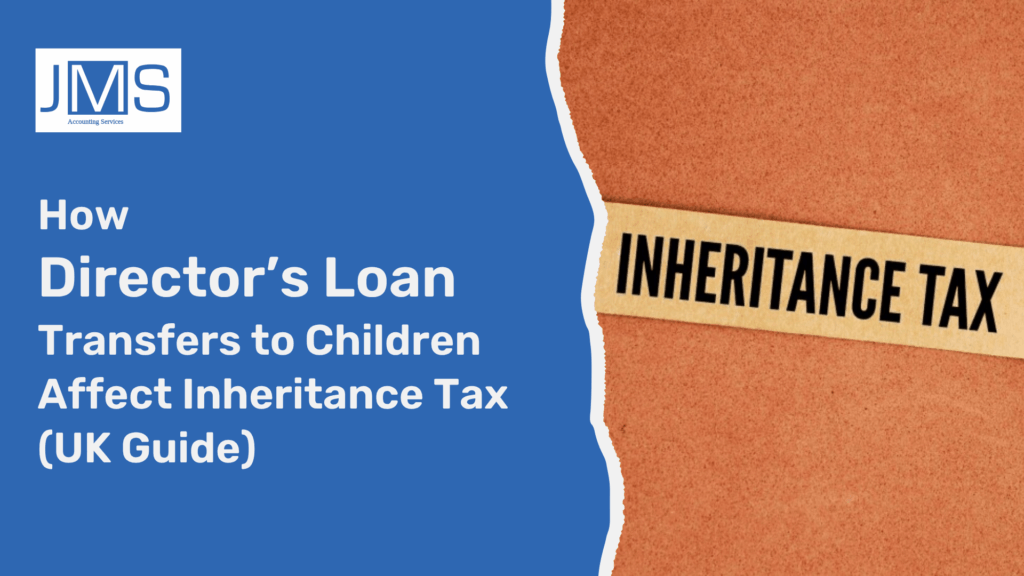How Director’s Loan Transfers to Children Affect Inheritance Tax (UK Guide)

Assigning directors’ loans to children can have significant inheritance tax (IHT) implications, depending on how the transaction is structured and the timing. Here are some key points to consider: 1. Nature of the Loan Transfer Gift vs. Loan:When you assign a director’s loan to a child, it can be viewed as either a gift or a transfer of the loan amount. If the loan is simply transferred without formal repayment terms, HM Revenue & Customs (HMRC) may consider it a disposal or gift. Formal Assignment:Proper documentation of the transfer as an assignment of the debt can help clarify the nature of the transfer. 2. Potential Inheritance Tax (IHT) Implications Gift with Potentially Exempt Transfer (PET):If the transfer of the loan is considered a gift, it may be classified as a PET. Such gifts are potentially exempt from IHT if the donor survives for seven years after making the gift. Immediate IHT Liability:If the transfer is made and the donor dies within seven years, the value of the gift (the loan amount) may be included in the estate for IHT purposes, potentially increasing the estate’s IHT liability. Charge on the Recipient:If the transfer involves a debt owed to the estate (e.g., if the director’s loan is assigned to a child), the child’s receipt of the loan may not be a taxable event per se, but the value of the gift remains relevant for IHT. 3. Impact on the Estate Depletion of the Estate:Assigning loans to children effectively reduces the estate’s value, which may decrease future IHT liabilities if the estate is below the nil-rate band. Potential for Clawback:If the loan is forgiven or not repaid, it could be seen as a gift, triggering IHT considerations. 4. Other Tax Considerations Income Tax and Capital Gains Tax:The transfer of the loan itself may not trigger immediate income or CGT, but if the loan is forgiven, there could be CGT implications. Chargeable Events:Forgiveness of the loan could be a chargeable event for IHT purposes, especially if the loan is considered a gift. 5. Planning Tips 6. Consult a Professional Given the complexity and the potential for significant tax consequences, it’s advisable to consult with a qualified tax advisor or estate planner before proceeding with such transactions. Summary Assigning directors’ loans to children can be considered a gift for IHT purposes, potentially triggering a PET that is only exempt if the donor survives seven years. If the donor dies within that period, the value of the loan may be included in the estate for IHT calculation. Proper documentation and planning are essential, and professional advice is strongly recommended.